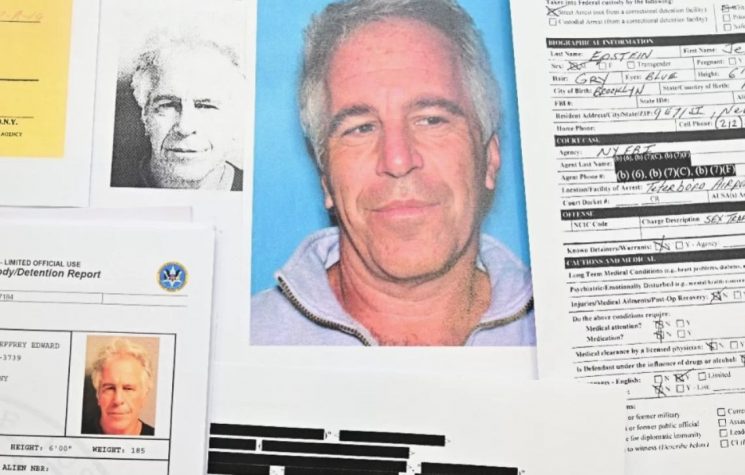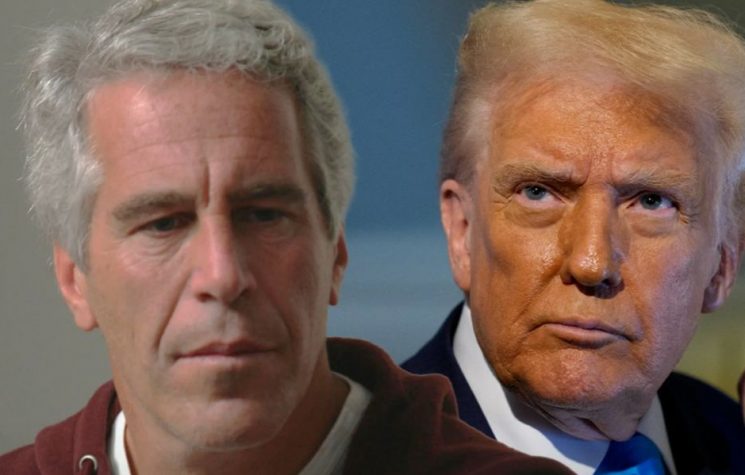The dismissal of Karen Attiah at the Washington Post has caused ripples in the aftermath of the murder of Charlie Kirk. But was the Post’s decision to fire her racist?
Join us on Telegram![]() , Twitter
, Twitter![]() , and VK
, and VK![]() .
.
Contact us: info@strategic-culture.su
Journalists on national newspapers get fired all the time, especially during these tough times when outlets are constantly looking at slashing costs. So what’s so special about Karen Attiah, the Washington Post’s global opinion editor? She’s black.
To be a black woman and to be a journalist with big media is such a unique thing, that it is perhaps understandable why when Jeff Bezos, the Post’s owner decided to fire her, that she would go into overdrive and play the black victim card. She’s special.
After all, playing the victim and exploiting racism itself as a subject to monetize, has been her business model for nine years, so it shouldn’t come as a shock to anyone that she would go out with a number of petulant parting shots all claiming racism and foul play after Bezos fired her over her tasteless social media posts following the murder of Charlie Kirk.
But was this really the case? Is it really the case that the aftermath of white-on-white killings stirs the racist cauldron in America that it alienates black journalists from doing their jobs and asking germane questions?
“I pointed to the familiar pattern of America shrugging off gun deaths, and giving compassion for white men who commit and espouse political violence. This cycle has been documented for years. Nothing I said was new or false or disparaging— it is descriptive, and supported by data” wrote Attiah on Bluesky.
Probably the post that pushed Bezos over a line was Attiah exploiting Kirk’s racist remark about black women.
“Black women do not have the brain processing power to be taken seriously. You have to go steal a white person’s slot”.
“Washington D.C. no longer has a paper that reflects the people it serves,” the columnist said.
“What happened to me is part of a broader purge of Black voices from academia, business, government, and media — a historical pattern as dangerous as it is shameful — and tragic”.
And yet her claims of being victimized because of her skin colour are not true.
The truth is that it was a woke mindset which was at the Post five years after Bezos bought it which thought it would be a good idea to exercise positive discrimination when looking for a world opinion editor. The left, both in the U.S. and UK have indulged themselves with the somewhat preposterous notion that as a subject racism can only be spoken and written about by black people. Being black, angry and happy to use the subject of racism itself as her base seemed at the time to be a good idea and ticked a number of boxes. And she could write, no question, quite well.
But there is a huge difference between taking the subject of racism and using it to provoke debate and steer a nation’s consciousness towards reflecting on both its past and its present day problems and simply using the subject for self-profit. Racism was a cash machine for Attiah and a good example today how fifth-rate journalists always turn to the subject closest to their heart as their main area of ‘expertise’. Jeff Bezos, when he bought the Post probably began to think that the constant race-baiting, victim-based narrative that Attiah had to offer was outdated, irrelevant and did more harm than good. He even issued a notice to opinion writers six months before which presumably Attiah didn’t respect.
Yet it’s hardly the first time a major institution in the U.S. has dropped Attiah for her lame work. Columbia university pulled the plug on her funding for her course after just two months in 2024.
Attiah actually wasn’t that good, if the truth were to be told. Or rather, she might hold her own as a black activist, but as a journalist, or at least an opinion editor who has to be a leader to others, she doesn’t cut it. To have the support mechanism and PR machine of the Post around you for nine years and end up with nothing, not even an impressive social media footprint, speaks volumes. Considering the hugely controversial subject area she wrote about, if her work was top notch, she would have easily had between 1 and 2 million followers on X, given the footprint that the Post has on social media.
She barely had any journalistic background to speak of and adopted the role of black polemicist in preference to anything journalistic in her role, which was created for her, as global opinion editor. Instead of cursing the Post she should be thanking it for giving her the greatest chance to develop as a journalist and to further her career and her image within the industry. Instead, all she can offer is racist conspiracy theories as to why she had to go and overthinking how the speed of the decision was linked to something nefarious, complete with cloak and dagger. The swift decision in reality was a lucid indicator that she was already on the short list to be pushed out and so no lengthy decision making process was necessary.
Attiah’s signature in almost everything she did as opinion editor was that it was all about her. Her articles and postings were just polemicist stunts aimed at drawing attention to herself at any cost and it is clear that rather than writing something insightful about Charlie Kirk’s murder, which is what is required of opinion editors, all she could deliver was just more racist bile. Her obsession with herself and promoting herself even extended to not very believable teary on-screen moments when Jamal Khashoggi was brutally murdered in the Saudi embassy in 2018 in Istanbul. The self-promotion was appalling as it was barely credible that they were even friends. As opinion editor, she had to communicate with him via email and there was no indication at all that there was any friendship of any caliber but she exploited his death. Even today on Bluesky she is rambling on about how she brought the Saudi journalist to the Post as though the owners of the journal have missed something about her editorial abilities.
All journalists know you are judged by the impact of your work. Attiah is unable to offer one thundering piece of copy which moved congress to vote on a given subject or made us think differently about the world. All she has is pathetic minutia offerings of lame achievements such as recruiting Khashoggi. What is significant about her dismissal is the message that it leaves for other black journalists as well as the owners of big media whom they might employ. For the upcoming journalists, they will have to write about racism, if indeed this is their forte, in a much more salient, enlightening way instead of just playing the victim card and milking it for every penny. For the new generation of editors, they will be very cautious about employing someone based on the colour of their skin when giving that individual such a remarkable opportunity gets thrown back in the faces of those who made the gesture. Charlie Kirk didn’t kill off black journalism, people like Karen Attiah did that perfectly well all on their own.










































